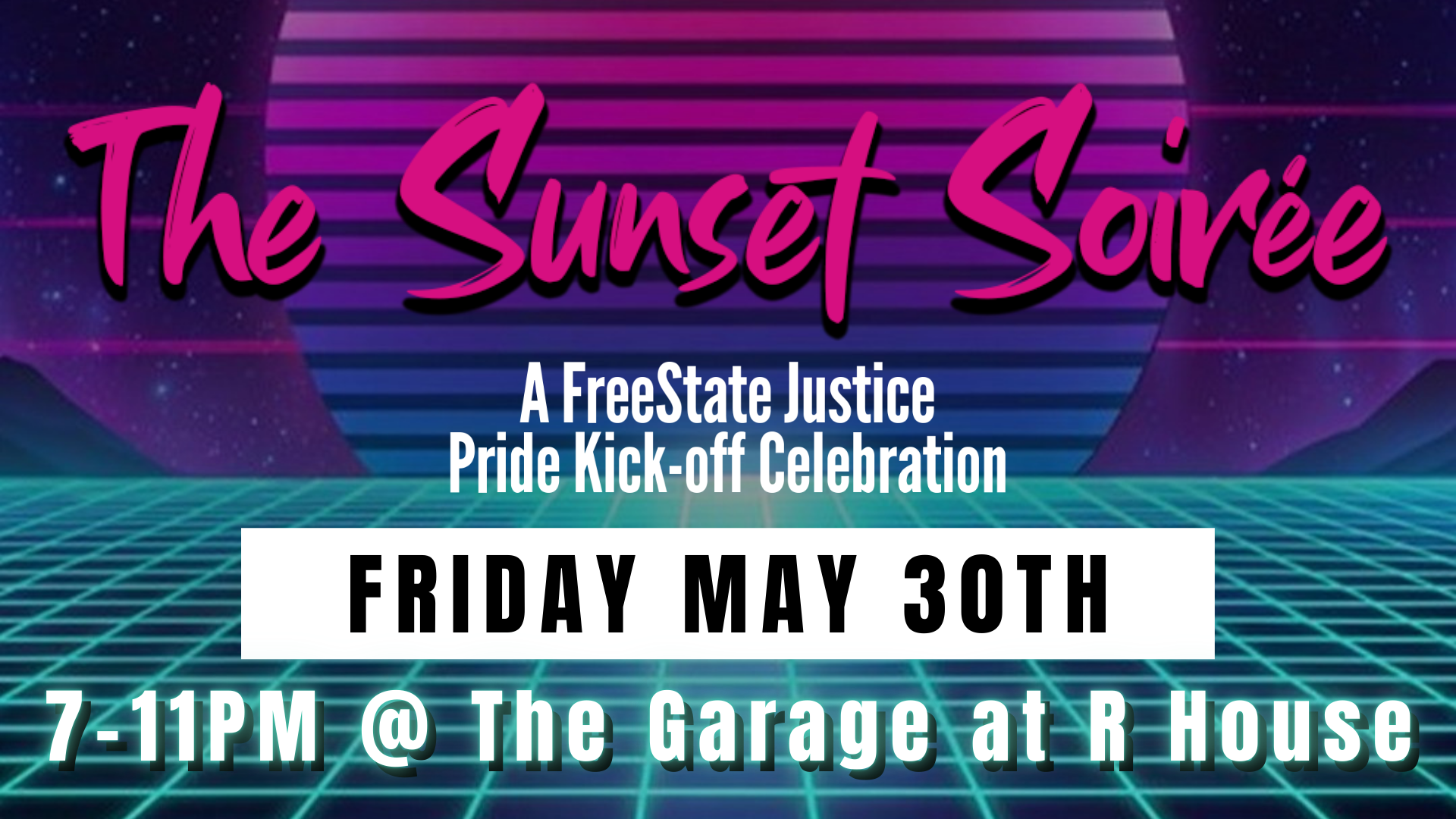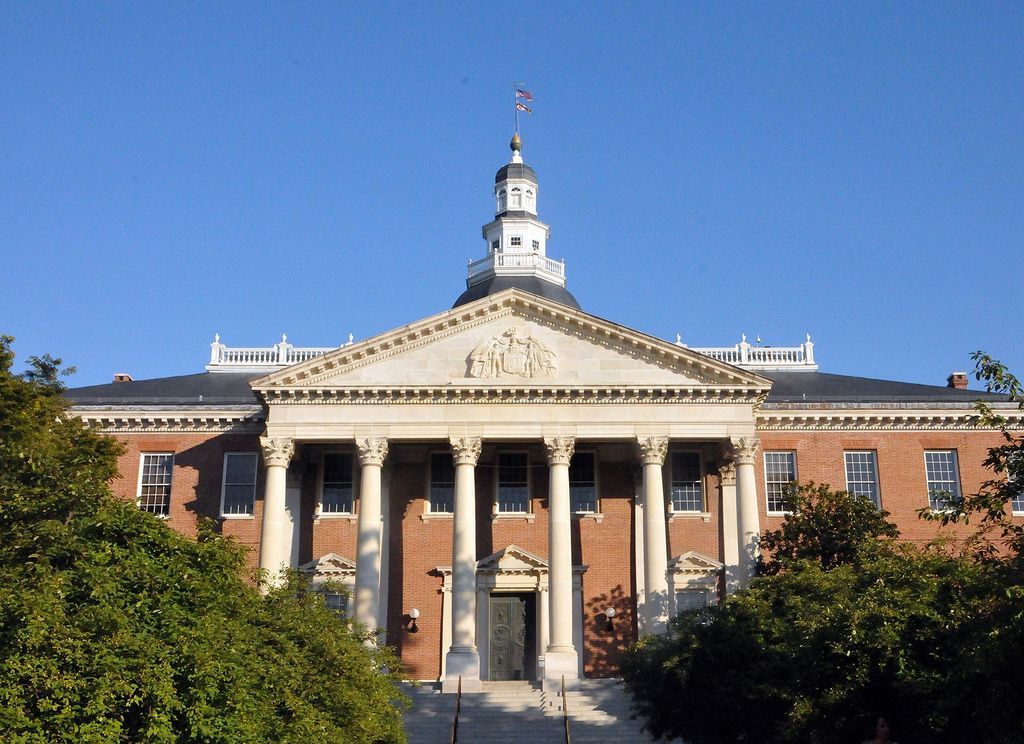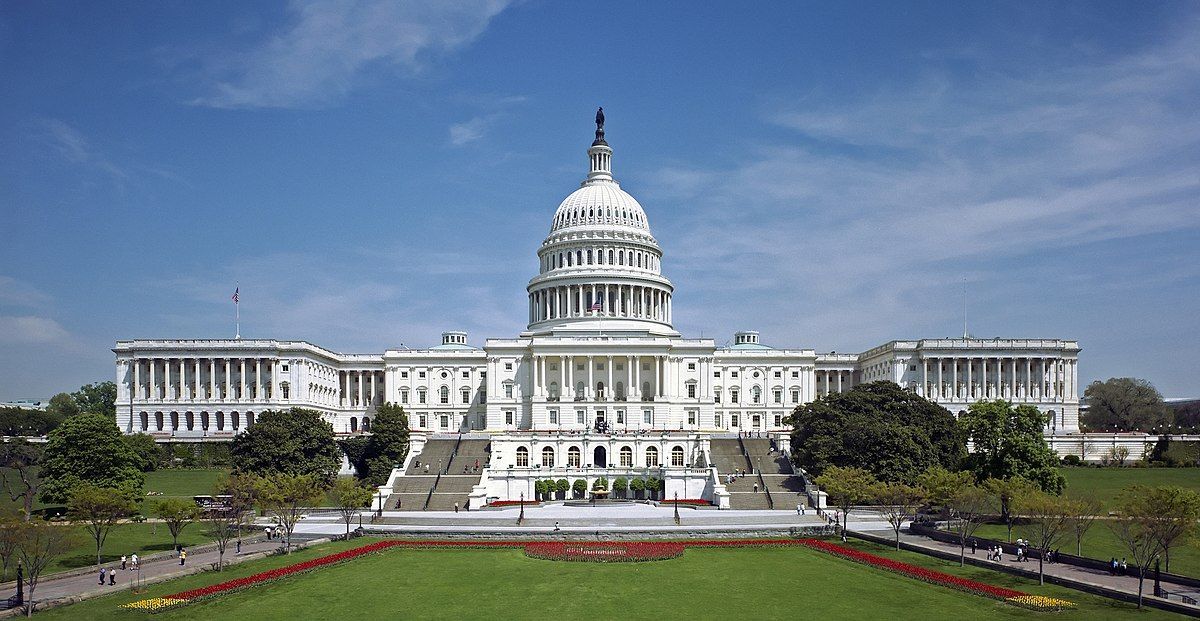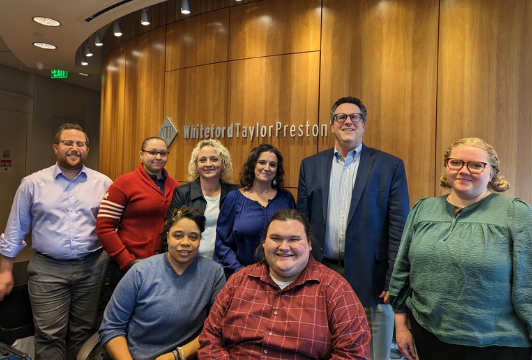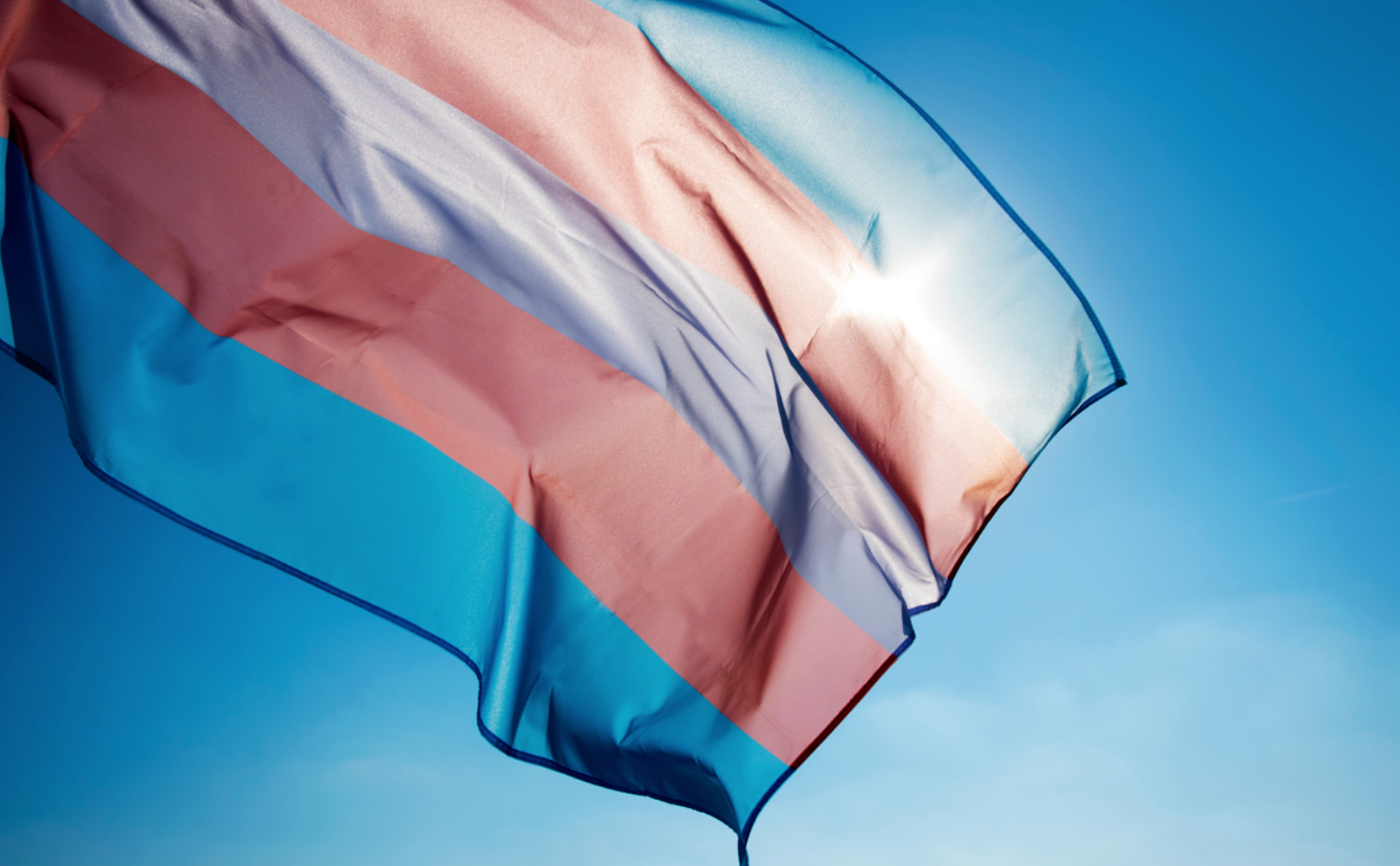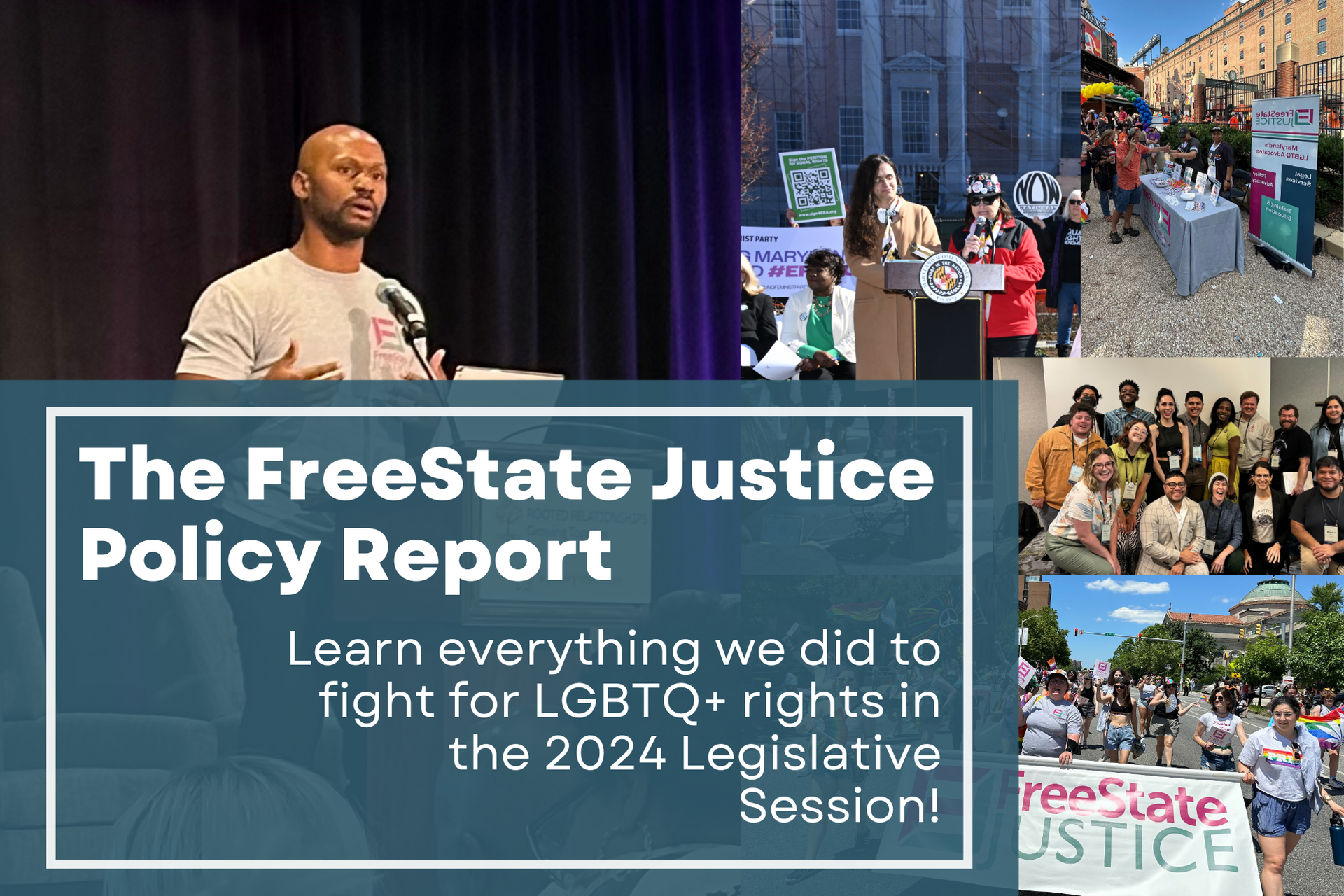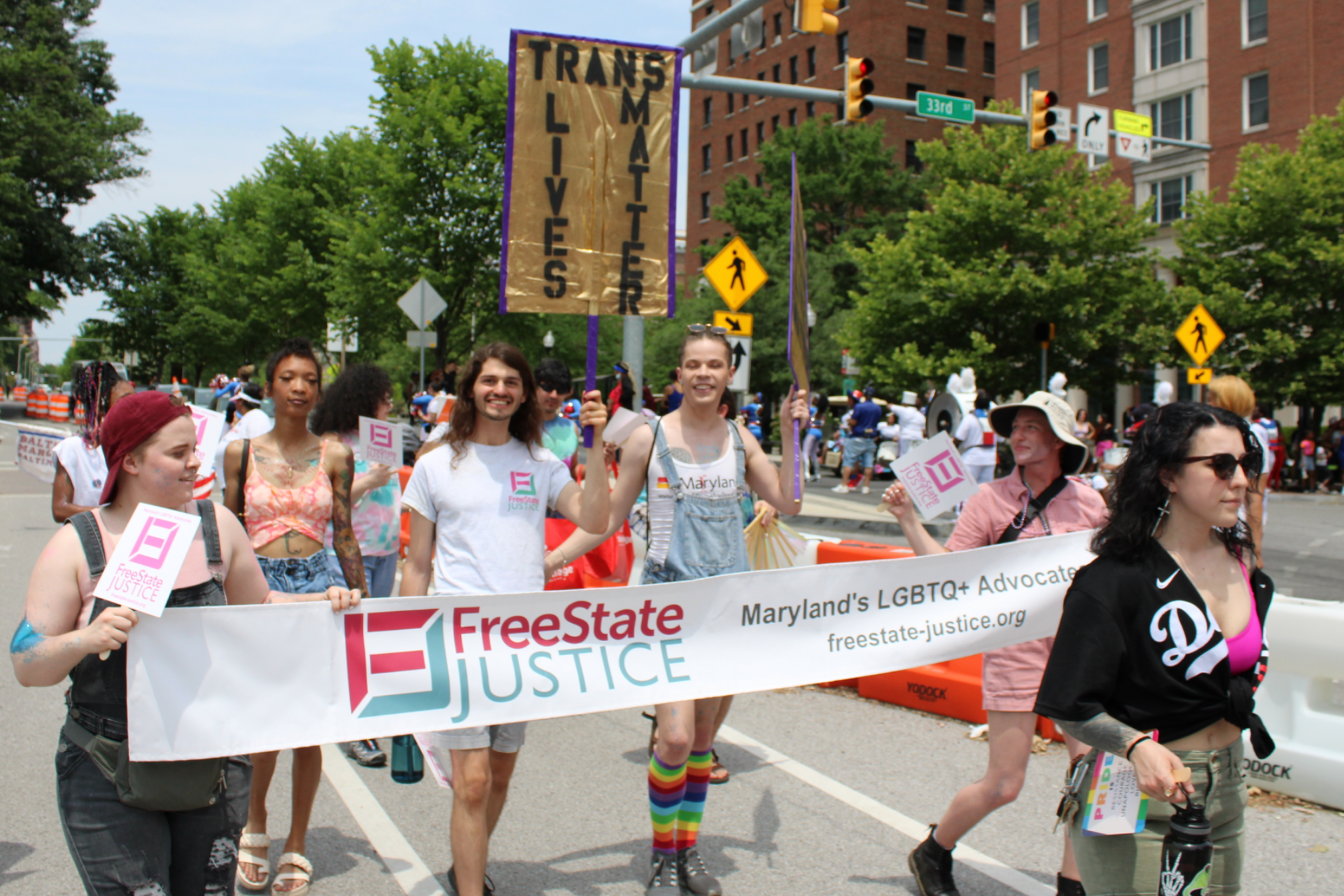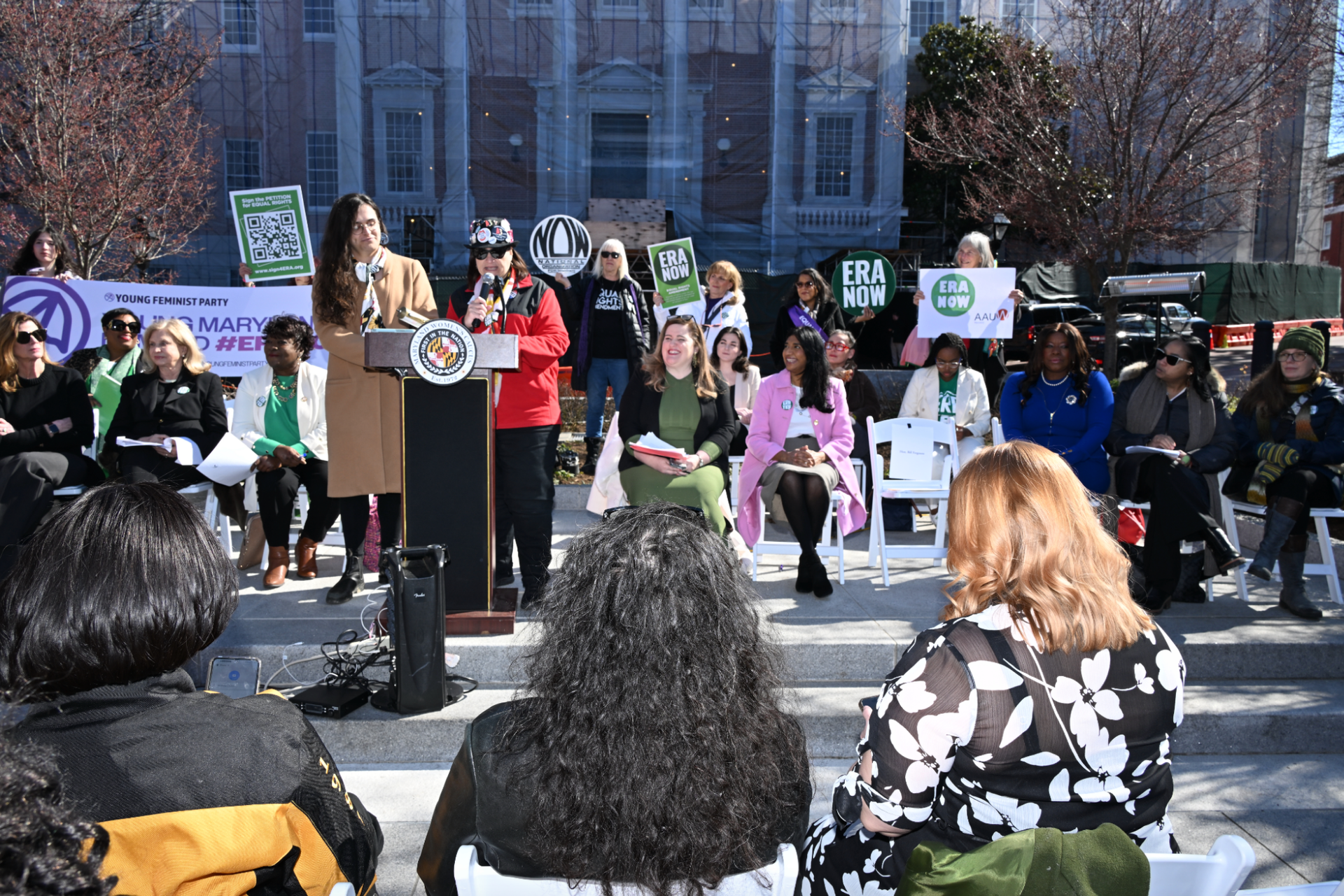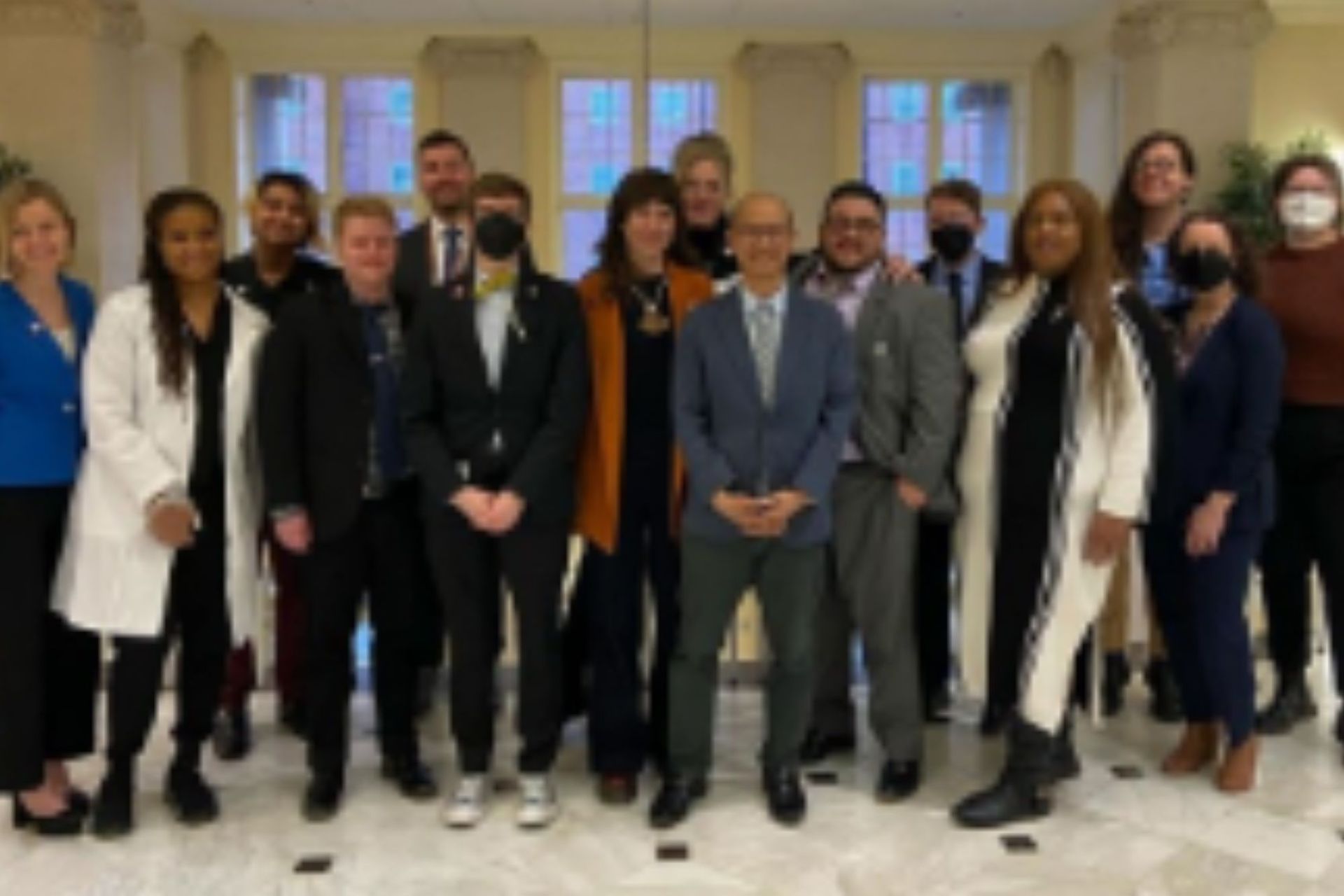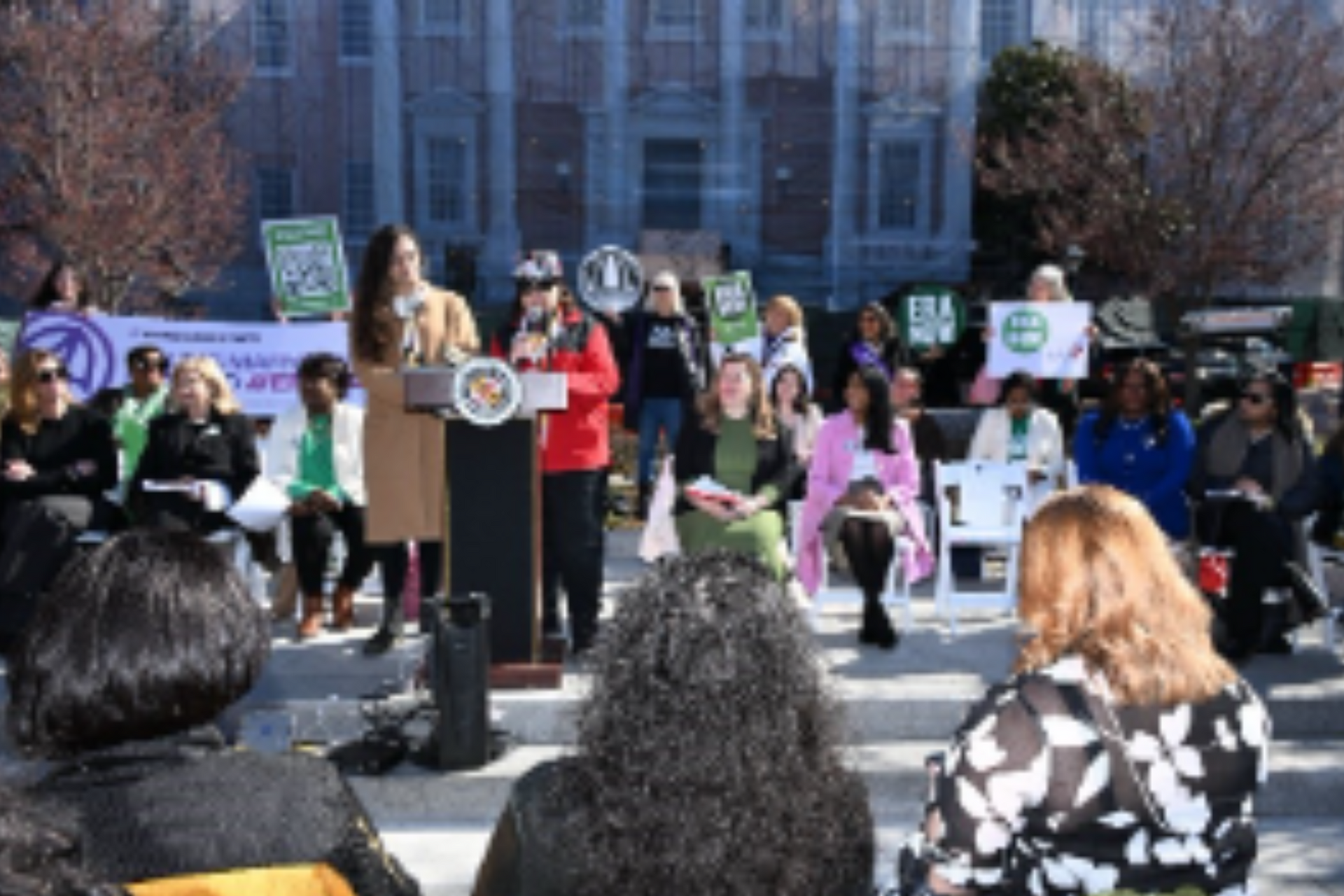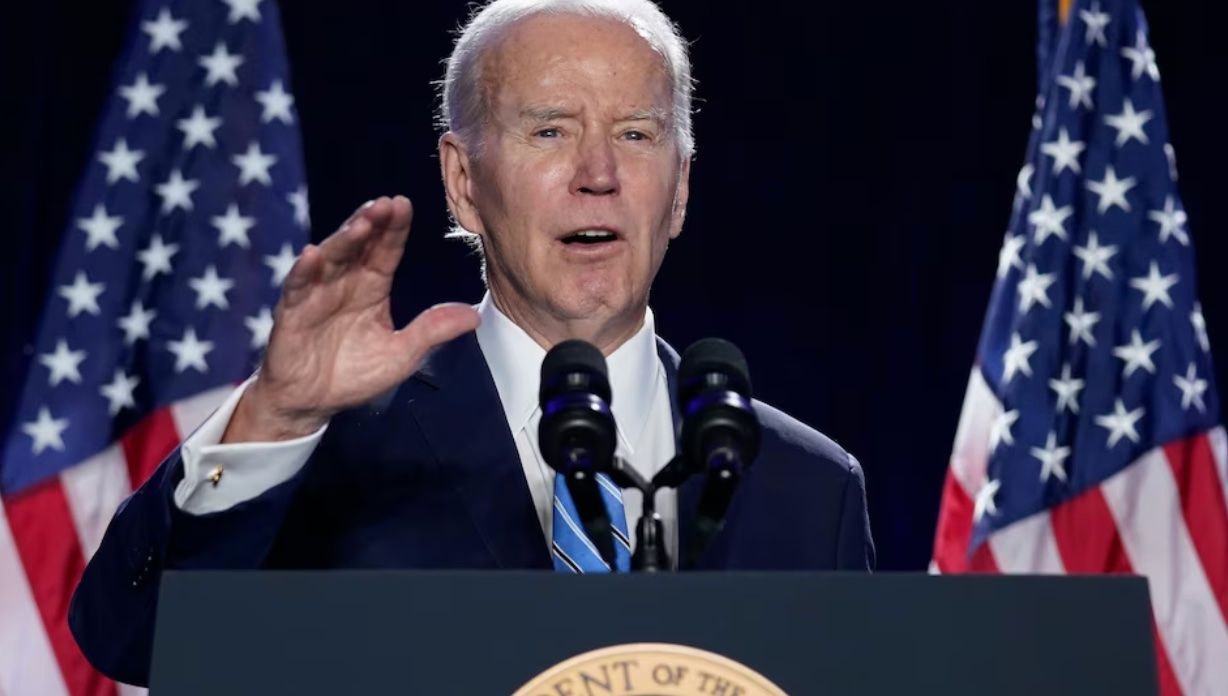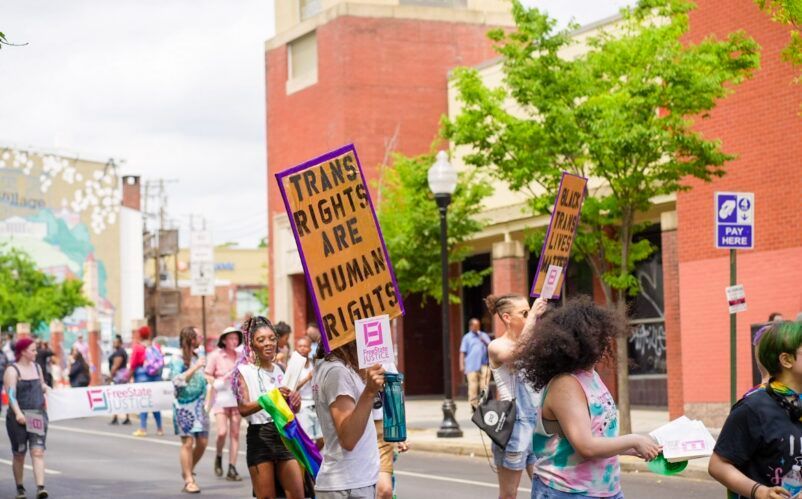By Joel Medina
•
November 12, 2024
Even though I have been working with FreeState Justice in some capacity for over a year, my mom still struggles to remember the name of the organization. I tell her I am leaving for work, and she responds, “Okay! Have fun at the Justice League!” It is the nickname she’s been using for FreeState since I first told her about my job. I pretend to be annoyed by the constant mix-up, but secretly, I like the nickname. Calling us the Justice League makes it sound like I work with superheroes, and in a way, I do. The FreeState Justice legal team works hard to provide high-quality, free representation to members of Maryland's LGBTQ+ community who cannot afford to hire a private attorney. Our work covers a wide range of legal areas, including family law matters, such as divorce and adoption; anti-discrimination law in settings like housing, healthcare, employment, and education; and name changes and declarations of legal gender identity for children and adults. We cannot handle criminal defense, but we do help people expunge old charges that might make it difficult for them to find a job or rent an apartment. I call my coworkers superheroes because we do this work under crazy constraints. Our small team must serve clients while working within the strictures of tight budgets, formal grant rules, and official court procedures. Even on the best days, the work can be exhausting, but my coworkers and I believe that the services we provide are invaluable, and we hope our clients would agree. My time with FreeState Justice has taught me a lot about the practice of law, about myself, and about the world around me. What follows are six truths I’ve learned about working with the superheroes that make up the FreeState Justice legal team. 1. Everyone can make a difference The American legal system is complicated. If it was not, attorneys would have a difficult time finding clients. The legal system is also resistant to change and was designed to serve the interests of the majority (in other words, straight, white men with money). Because of this, people from marginalized communities are more likely to need help navigating the system. I love working at FreeState because it empowers me to make a difference in two communities that are important to me: the LGBTQ+ community, and the city of Baltimore. When you are involved in social justice work where you live, you get to contribute to your local community in a positive way every day. If, as is the case for myself and many of my coworkers, the area you work in is one that directly affects you, then you also get to give back to your own community. And even if you aren’t directly affected by your own work, you can still take pride in knowing that you are making a local difference. 2. Success has multiple meanings I have learned to define success as doing my best to help as many people as I can, subject to all the constraints that I am. In a world where my coworkers and I have unlimited time, funding, and expertise, this would mean representing every person who reaches out to us with a legal issue that has merit and winning in court every time. But as I noted above, budgets, grant restrictions, and your own capacity limit how much you can do, and you must be realistic. It helps to think of success not as winning every case, but rather as doing the best you can for every client. Some things I count as successes include helping a client successfully change their name, connecting someone with a staff attorney who might be able to help them, and referring people to other services who might be able to help them if FreeState cannot. This last one is really important; for some clients, that’s the best we can do, and we have to accept that. 3. A sense of humor is essential People’s lawyering is often frustrating. The legal system does not always provide clients with their desired outcomes, and every court has its own idiosyncrasies. Sometimes a process that was worked hundreds of times before has to be changed because a court wants filings presented differently. Other times, even the most well-thought-out arguments are not enough to convince a skeptical judge. When your best laid plans go awry, it is good to laugh. The situation you are facing might not be funny, but you can still laugh at the ridiculousness of the circumstances. It is best if you can laugh with your coworkers. This is not always possible, because you must protect confidentiality, but if your colleagues know the situation already, then you can all laugh together at the crazy new rule a court has implemented or whatever else might be bothering you. 4. Little victories matter as much as big ones It is easy to be disheartened by the ongoing shifts in the legal landscape. Ongoing attacks on people’s right to seek gender-affirming healthcare, to access media that represents them, or to participate in forms of artistic self-expression like drag performances can make the world seem like a bleak place. You might even feel powerless against the onslaught of anti-LGBTQ+ legislation, at times. When this happens, it is helpful to think small. Even though they may seem like small acts, helping a client update their identity documents after their name change is granted, completing a petition for someone’s declaration of legal gender identity, or drafting a will and advanced directive for a person are profound. Hearing that their name change has been granted and knowing they can go get an ID with their chosen name may be the highlight of someone’s day. Completing a name change petition helps not only helps a client in their journey to being themselves, it also forces the government to recognize clients for who they are. And wills and advanced directives are essentially ways for someone to say “I am here, I matter, my property matters, and these are the relationships the government needs to acknowledge.” These are all very powerful, when you think about how many people were forced to live in the closet without the kind of acknowledgement these services provide. 5. You cannot fix everything My coworkers may be superheroes, but they are not wizards. We can do a lot, but the truth is that we cannot fix every problem someone might want our help with. Whether because of limited funding, a lack of capacity, or because what someone wants is not something the legal system can give them, there are people we are unable to assist in-house. It is difficult to tell someone no, but it is unavoidable. When we do have to tell someone that we cannot assist them, we try to send them away with a list of other organizations that might be able to help them or creative workarounds and non-legal solutions to their problem. This can be tricky if someone is dealing with an unusually complicated issue, but we can usually find at least one or two organizations that can help. So, even if one of FreeState’s superhero attorneys cannot take on a particular case, there is probably another attorney somewhere who can. 6. There is always more work to do Social justice work is never-ending. Case in point: marriage equality, one of the most significant milestones for the LGBTQ+ community, passed in Maryland over ten years ago, but the fight for equal treatment continues. Anti-LGBTQ+ discrimination, especially anti-trans discrimination, is an ever-present threat, and even in relatively progressive states like Maryland, attorneys are needed to ensure that legal protections for LGBTQ+ people are enforced and bad actors are held accountable. When we win one fight, we must pivot to the next while ensuring that our most recent victory isn’t diluted. For example, in the last session of the Maryland legislature, we saw the repeal of Maryland’s Unnatural and Perverted Practices Act, a law that criminalized consensual sexual activity between people of the same sex. The repeal of this law was important and worth celebrating, but now we must make sure no one attempts to reintroduce a similar law, and we must keep up the fight to repeal other outdated laws, like Maryland’s criminalization of HIV. In short, there is no shortage of work for the superheroes that make up FreeState Justice’s legal team. Written by Oliver Santos, Legal Intern and Intake Specialist
